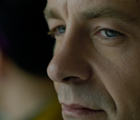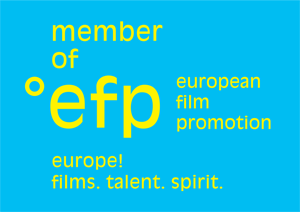The Plastic Cardboard Sonata (Film) (first feature)
by Enrico Falcone, Piero Persello
see also
original title:
The Plastic Cardboard Sonata
directed by:
cast:
Andrea Vasone, Fabiana Feliziani, Rimi Beqiri, Martina Palmitesta, Nicole Petrelli, Snejana Shandarinova, Daniele Tammurello, Matteo Montalto, Sandro Luciani, Lorena Scintu, Massimo Ceccovecchi, Gaia Ceccovecchi, Antonio Mirabella, Fabio Ulleri, Germana Flamini, Monia Rosa, Alberto Bosani, Alex Chiaf, Fabrizio Nazionale, Giuseppe di Pasquale, Valentina Melle, Stefano Grillo, Claudia Panzavecchia
screenplay:
cinematography:
editing:
set design:
costume design:
music:
Pasquale Mollo
production:
country:
Italy
year:
2015
film run:
80'
format:
colour
festivals & awards:
- BIF&ST – Bari International Film& Festival 2016: ItaliaFilmFest
- International Film Festival of Uruguay 2016: Focus Italia
- Pune International Film Festival 2016: World Competition
- Montréal World Film Festival 2015: Compétition des premières œuvres
He is a plain estate agent who lives his uneventful life in the anonymous suburb of an unspecified city. Indeed such a showing of “compulsive ordinariness” conceals his predicament of autistic iso-lation. Therefore, as he attempts to make up the illusion of an ideal world, he daily puts on a pan-tomime of the “perfect neighborhood”, which is painstakingly staged by a group of paid walk on people. While such an artifice seems to help him fulfill his unexpressed love dream, a harsh over-whelming reality forces him to give up his illusions and eventually get in touch with the imperfect human dimension. The Plastic Cardboard Sonata is a story of urban loneliness, featuring lyric sug-gestions in the context of a paradoxical frame. By means of an accurate use of silence it sketches out the essence of daily life malaise.
DIRECTOR'S NOTES:
The inspiration of The Plastic Cardboard Sonata was originated by the wish to portray a phenomenon which our eyes have figured out and our lives have directly experienced: the solitude of a new kind of middle class suburbs, which have recently stood out in the outskirts of Rome.
We felt the urgency to show how those places slipped out of our control. Such places where human relationships are pervaded by material interest and boredom, common spaces are inexistent, architectural settings rule the way people face to one another - as department stores have substituted for squares. Moreover, buildings are so indistinguishable as the lives they host. Similar neighbourhoods are inhabited by a new species of “migrants”, that is to say urban commuters who consciously avoid any contact with the beating heart of the city.
All the new Roman outskirts just look identical: a nowhere land populated by single individuals who do not match together, although they feature the same stories. They are far cry away from Pasolini’s crowd - with their humane authenticity - not only from an imaginative and social point of view. In our movie, no character has a specified name, since nobody is called with their name in the new suburbs. Everyone is identified by what (s)he does and shows out, and is differentiated just according to his habits and neurosis. People are superficially reduced to their acting, as their identity is paradoxically sketched on a stereotypic basis.
We had very scarce means to implement our project but a strong motivation: the available budget only amounted to 16.000 Euro, yet we had a vision to aggregate potential. That is how we have found out a different side of Italy: not only a country for bored, mean, and hopeless people, but a macrocosm of artists who cannot comply with the standardisation and depletion of expression models. We have involved great professionals, who generously helped us tell our story without any expected compensation for their time and effort. They all belong to an élite of free thinkers who still believe that one can be part of what (s)he is appealed by, however unrewarding this could turn.
Therefore, The Plastic Cardboard Sonata is a bet against all odds – at least with respect to the cinema standards we are accustomed to. It is a harsh and dystopic narration which abhors sentimentalism and falsification; thereupon, in spite of its pervading lyricism, no predicted happy ended is provided. It is an exploration through the spiralling depth of solitude, which has no end or starting point just like the protagonist’s story - as “empty and waste is the sea”.






